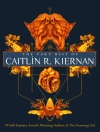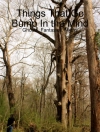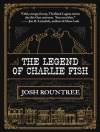In ‘The Hill of Dreams, ‘ Arthur Machen crafts a hauntingly lyrical narrative that delves into the intersection of dreams and reality in the life of a struggling writer, Richard Gilbert. Set against the evocative landscapes of Wales, the novel melds supernatural elements with a rich, impressionistic prose style, reflecting Machen’s penchant for mysticism and the esoteric. Through its exploration of aesthetic beauty, creative longing, and existential dread, the text positions itself within the late Victorian literary context, responding to contemporary dialogues on symbolism and spirituality, while inviting readers into its enigmatic and dreamlike atmosphere. Arthur Machen, a pivotal figure in early 20th-century literature, was deeply influenced by his Welsh heritage and his interest in mysticism and folklore. His personal struggles with faith and identity, coupled with his exposure to the occult, vividly inform the psychological depth and supernatural nuances present in ‘The Hill of Dreams.’ Machen’s work often interrogates the boundaries between the mundane and the fantastical, elements that are keenly embodied in this novel, making it a personal testament to his artistic vision. I highly recommend ‘The Hill of Dreams’ to readers intrigued by the darker, more metaphysical aspects of literature. Machen’s unique blend of prose and philosophy not only captivates the imagination but also challenges us to contemplate the very essence of reality and the power of dreams. This novel stands as a testament to Machen’s mastery and remains a seminal work for those seeking a profound literary experience.
A propos de l’auteur
Arthur Machen (1863-1947) was a Welsh author and mystic, esteemed for his influence on supernatural, fantasy, and horror fiction. Hailing from Caerleon-on-Usk, Machen drew heavily on the landscape of his youth to color the richly textured backdrop of his work. His fascination with the occult and ancient history is evidenced in his literature, a pioneering fusion of fin de siècle decadence with gothic horror. ‘The Hill of Dreams’ (1907) is often considered his masterpiece; a semi-autobiographical novel, it recounts the spiritual and psychological journey of a young writer named Lucian Taylor who immerses himself in the arcane and the esoteric, leading him into a world of visionary experiences and horrors. Machen’s prose, noted for its ornate language, evokes the haunting beauty of the Welsh countryside and intertwines with an exploration of the human psyche. The novel was not initially successful, but it has since been lauded for its lyrical quality and imaginative prowess, influencing later horror writers like H.P. Lovecraft. Machen’s work extends beyond ‘The Hill of Dreams’; his stories like ‘The Great God Pan’ (1890) reveal his talent for creating enduring mythic and terrifying narratives that resonate with existential unease and enigmatic allure. Despite his critical acclaim among aficionados of the genre, Machen often struggled with financial instability, yet his legacy endures as a significant figure in the pantheon of weird and supernatural literature.












